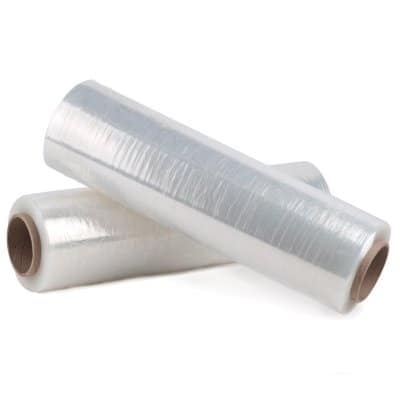Contact us to discuss your options and get expert advice on the best
shrink wrapping equipment and materials.
Environmentally Friendly Shrinkwrap
Kempner offer a range of environmentally responsible shrinkwrap films that are:
- Made with thinner profile to reduce the amount of resource in packaging;
- Effective when used in lower volumes
- Provide the same protective and aesthetic quality as conventional plastic films
We are always happy to discuss specific requirements to help you find the most responsible packaging solution for your products.
Reducing Waste With Environmentally Responsible Shrinkwrap
In order to reduce waste the industry has found novel ways to make shrink materials thinner to use less resources in the production of packaging materials. It is now possible to greatly reduce the thickness of shrink wrap without compromising the additional strength and pack integrity that plastic films can provide. This is an important step for the packaging industry because a lot of packaging, be it plastic or cardboard cannot be recycled if it has been contaminated with food, for example.
The use of these thinner films can not only help dramatically reduce the amount of plastic in the waste stream but also provide significant savings on both packaging itself, as well as the associated Packaging Waste compliance tax.

Recycled & Recyclable Shrinkwrap Films
In addition to creating more efficient materials, the industry is also moving towards including recycled materials into shrink wrap films. Kempner are able to offer a range of shrinkwrap film options that can be composted and recycled, so get in touch to find out more information about these environmentally responsible shrinkwrap options. As mentioned above, there are some instances where recycling materials is not practical. Whilst it is important to address consumer behaviour when it comes to recycling, producers choosing packaging options that contained recycled materials is a positive step towards a more sustainable packaging industry.

Using Renewable Shrinkwrap Materials
We can supply polyolefin films that contain up to 51% sugar cane. Including this much renewable material translates to drastic reductions in carbon footprints when compared to conventional shrink wrap films such as polypropylene. The renewable materials have been developed to address the shrink wrap industry’s reliance on fossil fuel derived plastics and can provide all of the same benefits as conventional shrinkwrap materials. Please read our shrinkwrap guide for more information or contact us to discuss which environmentally friendly options are best suited to your needs. Alternatively you can get in touch and one of our team will happily discuss your requirements and help to identify the most environmentally friendly shrinkwrap option for your products.

What Does the Future Hold for Shrink Wrap Plastics?
It is impossible to predict what the future holds for shrink wrap plastics. Thinner shrink wrap materials and those including sugar cane do not compromise product strength. Modern shrink wrap are a great deal thinner, but are just as strong as regular plastic shrink film. This reduces plastic waste at the production stage. By producing this thinner shrink wrap, consumers will automatically receive far less packaging than they previously would have, resulting in less packaging going to landfill if they choose not to recycle.
Reducing the Environmental Impact of Shrinkwrap Films
Kempner are continually doing all that we can to reduce our environmental impacts and make our industry more sustainable. Current thinking in sustainable circles tends to favour circular economy arguments. The idea of throwing products away is itself flawed. This is true even if products are biodegradable and (or) contain recycled materials. With this in mind we believe that the most responsible approach is to minimise film thickness, thereby minimising resource uptake in the first instance.
Kempner have a range of shrink wrap films made from materials that are both thinner and stronger than conventional materials. We are also trying to close the loop and become more circular. Kempner have recently worked with the OPRL (On-Pack Recycling Label) scheme, which provides a means of raising consumer awareness, and guidance toward disposal routes in relation to our films.
If you’d like to find out more about Kempner shrink wrap and our shrink wrapping systems then contact us today on 020 8952 5262.

